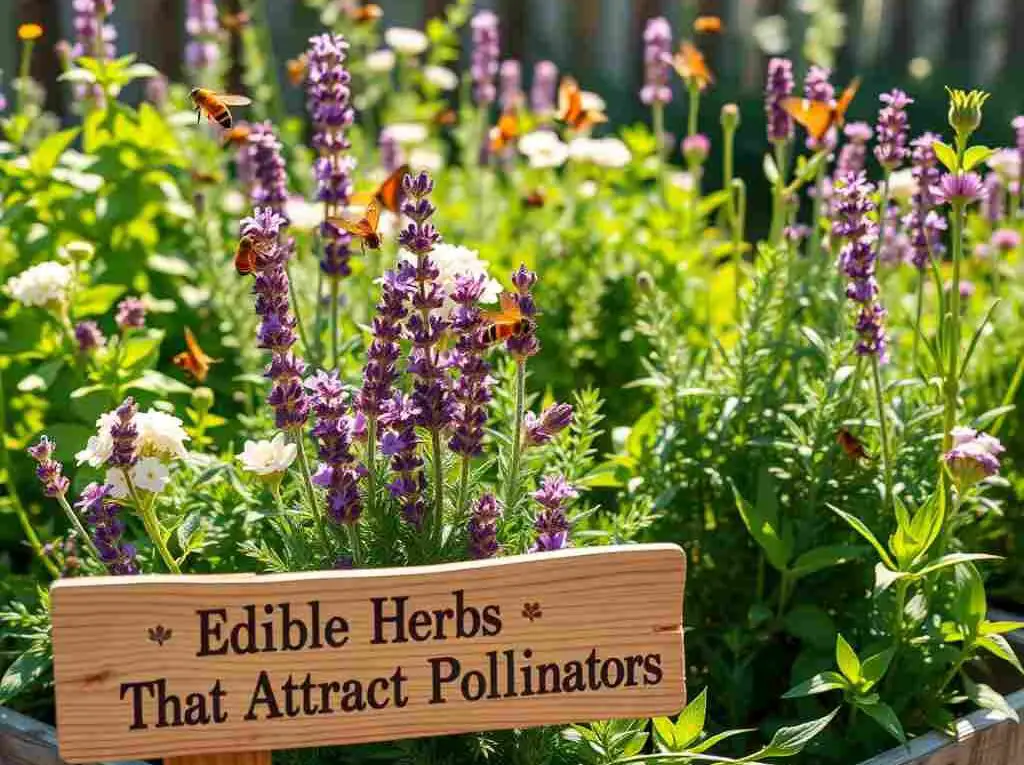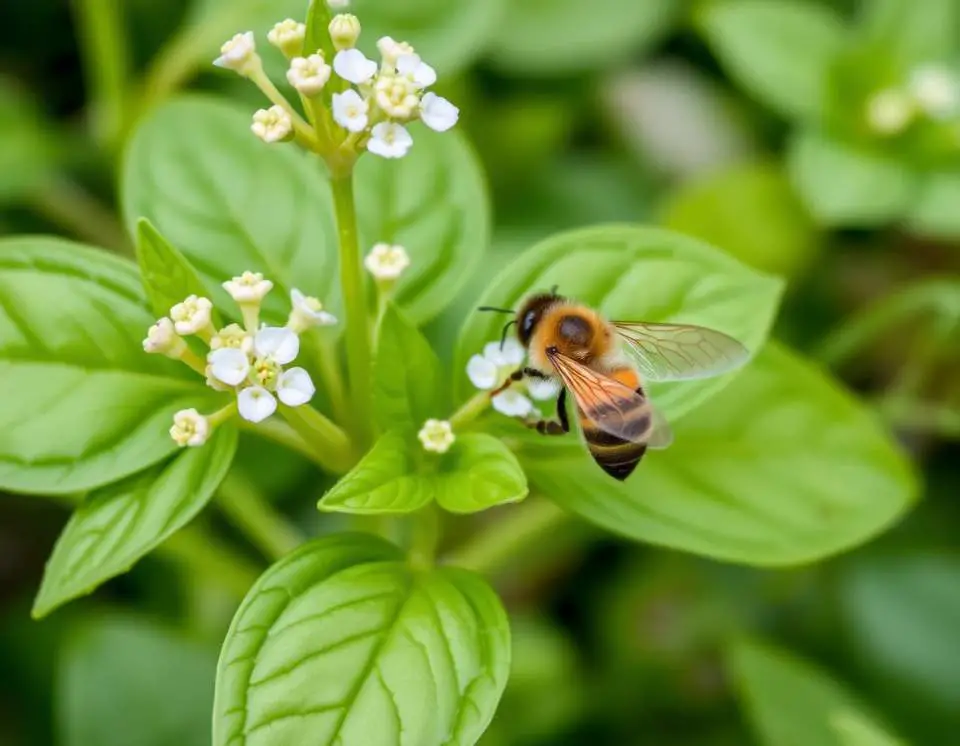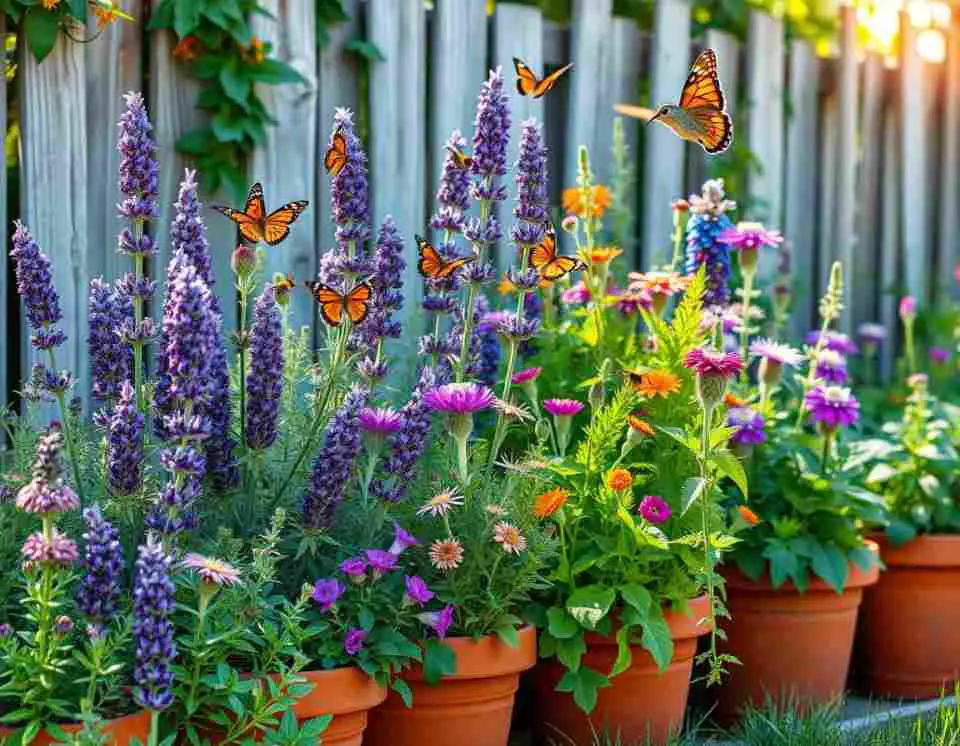Edible Herbs That Attract Pollinators: Grow Food Eat Well!
Let me guess: you love fresh herbs, you want a garden that actually does something, and the idea of helping pollinators sounds like a nice bonus, right? Well, spoiler alert: you can do all of that with edible herbs that attract pollinators. Yep, herbs aren’t just for tossing on pasta or pretending you’re on a cooking show. Many of them are also bee magnets (and butterfly favorites, too).
I started growing herbs because I was tired of paying $3.99 for a sad bundle of wilted basil. What I didn’t expect? A parade of bees, butterflies, and even hummingbirds showing up to say thanks. My backyard became a buffet, and honestly, it was kind of awesome. 😎
So if you’re ready to grow food and save the pollinators (without needing a whole farm), let’s talk about the best edible herbs that attract them.
Table of Contents
Why Pollinators Love Herbs (And Why You Should Care)
Before we dive into the good stuff, here’s a quick FYI: pollinators like bees, butterflies, and hummingbirds are essential. No pollinators = no food. They help plants reproduce, which means more fruits, veggies, and yep, herbs.
Herbs are basically the open-bar of the garden for pollinators. They’re full of nectar, easy to access, and bloom all summer.
So what do you get?
- Fresh herbs for your kitchen
- A garden that looks and smells amazing
- A buzzing, fluttering ecosystem of helpful visitors
Win-win-win.
Basil
Why Pollinators Love It:
When basil flowers, it produces sweet nectar that bees can’t resist. Especially if you let it bolt (a.k.a. go to flower).
Why You Should Grow It:
It’s a kitchen staple, smells like summer, and grows fast. I mean, who doesn’t want a constant supply of pesto?
Pro Tip: Grow multiple plants. Harvest some for cooking and let a few flower just for the bees.
Bonus: It’s great for repelling mosquitoes. So yeah, it’s a multitasker.
Lavender
Why Pollinators Love It:
Lavender flowers are loaded with nectar and bloom for weeks. Bees, especially bumblebees, go wild for it.
Why You Should Grow It:
You can dry it for tea, sachets, or even throw some into shortbread cookies. Plus, your garden will smell like a spa.
FYI: Plant it in full sun and well-drained soil. Bees don’t love swampy roots. Neither does lavender.
Thyme
Why Pollinators Love It:
Thyme grows low and spreads wide, creating a carpet of tiny flowers that bees and butterflies snack on all day.
Why You Should Grow It:
Perfect for adding to soups, roasts, or even a simple grilled cheese (trust me). It’s also drought-tolerant and practically grows itself.
Pro Tip: Let it flower! Many gardeners cut thyme back too early. Let it bloom for the pollinators, then harvest.
Oregano
Why Pollinators Love It:
Once oregano flowers, it turns into a pollinator party. Expect bees, butterflies, and even the occasional hummingbird.
Why You Should Grow It:
It’s ridiculously easy. It survives neglect, spreads fast, and brings that perfect zing to pizzas and sauces.
Watch Out: It can take over if you let it. IMO, that’s not the worst problem to have.
Chives
Why Pollinators Love It:
Chive blossoms are cute, purple, and packed with nectar. Pollinators love ’em, especially early in the season.
Why You Should Grow It:
Snip the leaves into salads, eggs, or baked potatoes. And those flowers? Totally edible and make your dishes look fancy.
Bonus Tip: Divide chives every couple of years to keep them healthy and blooming.
Mint (Yes, Even Mint)
Why Pollinators Love It:
Once it flowers, mint becomes a bee and butterfly hotspot. It’s basically pollinator bait.
Why You Should Grow It:
It’s great for teas, mojitos, and fresh breath. But be warned: it spreads like gossip.
Pro Tip: Grow mint in containers to keep it from invading your whole yard. Unless you’re cool with a mint takeover. :/
Dill
Why Pollinators Love It:
Dill’s yellow umbrella-like blooms are a magnet for butterflies and beneficial insects like hoverflies.
Why You Should Grow It:
Use it for pickles, fish dishes, or as a garnish. Plus, it’s a host plant for swallowtail butterflies.
Bonus: You might find a caterpillar munching on it. Let it be! You’re raising butterflies now.
Cilantro (Coriander)
Why Pollinators Love It:
Once it bolts (goes to seed), cilantro produces small white flowers that bees absolutely adore.
Why You Should Grow It:
Use the leaves in tacos and salsas, and let it bolt so you get coriander seeds and happy pollinators.
Heads Up: Cilantro bolts quickly in heat, so plan on growing it in cooler seasons or partial shade.
Fennel
Why Pollinators Love It:
Fennel has big yellow flower clusters that draw in bees, butterflies, and beneficial wasps (yes, those exist).
Why You Should Grow It:
The fronds are great in salads, and the seeds? Amazing in spice blends. Plus, like dill, it attracts swallowtail caterpillars.
Caution: It doesn’t play nice with other plants. Give it space or plant it in its own bed.
Borage
Why Pollinators Love It:
Borage blooms constantly and is basically a bee superfood. Bumblebees especially love it.
Why You Should Grow It:
It’s edible! The flowers taste like cucumber and look stunning in salads or ice cubes. Also, it self-seeds like a champ.
One More Thing: It’s a great companion plant for tomatoes and strawberries.
A Few Tips for Herb + Pollinator Success
Want to keep your garden buzzing and blooming? Here are a few quick tips:
- Let some herbs flower. Yes, even if you’re not “supposed to.”
- Grow a mix of early-, mid-, and late-season bloomers so pollinators always have something to snack on.
- Avoid pesticides. Even “organic” ones can mess with pollinators. Go natural.
- Plant in clusters. A big patch of thyme is way more attractive than one sad sprig.
- Add water. A shallow dish with pebbles gives bees a place to drink.
Final Thoughts: Feed Yourself, Feed the Bees
Growing edible herbs that attract pollinators isn’t just smart gardening—it’s a low-key way to support the environment without turning your backyard into a full-on farm. You get fresh herbs, prettier gardens, and a constant show of winged visitors.
So next time you plant basil or oregano, remember: you’re not just seasoning your dinner. You’re throwing a garden party, and everyone’s invited.
Happy planting! 🙂









